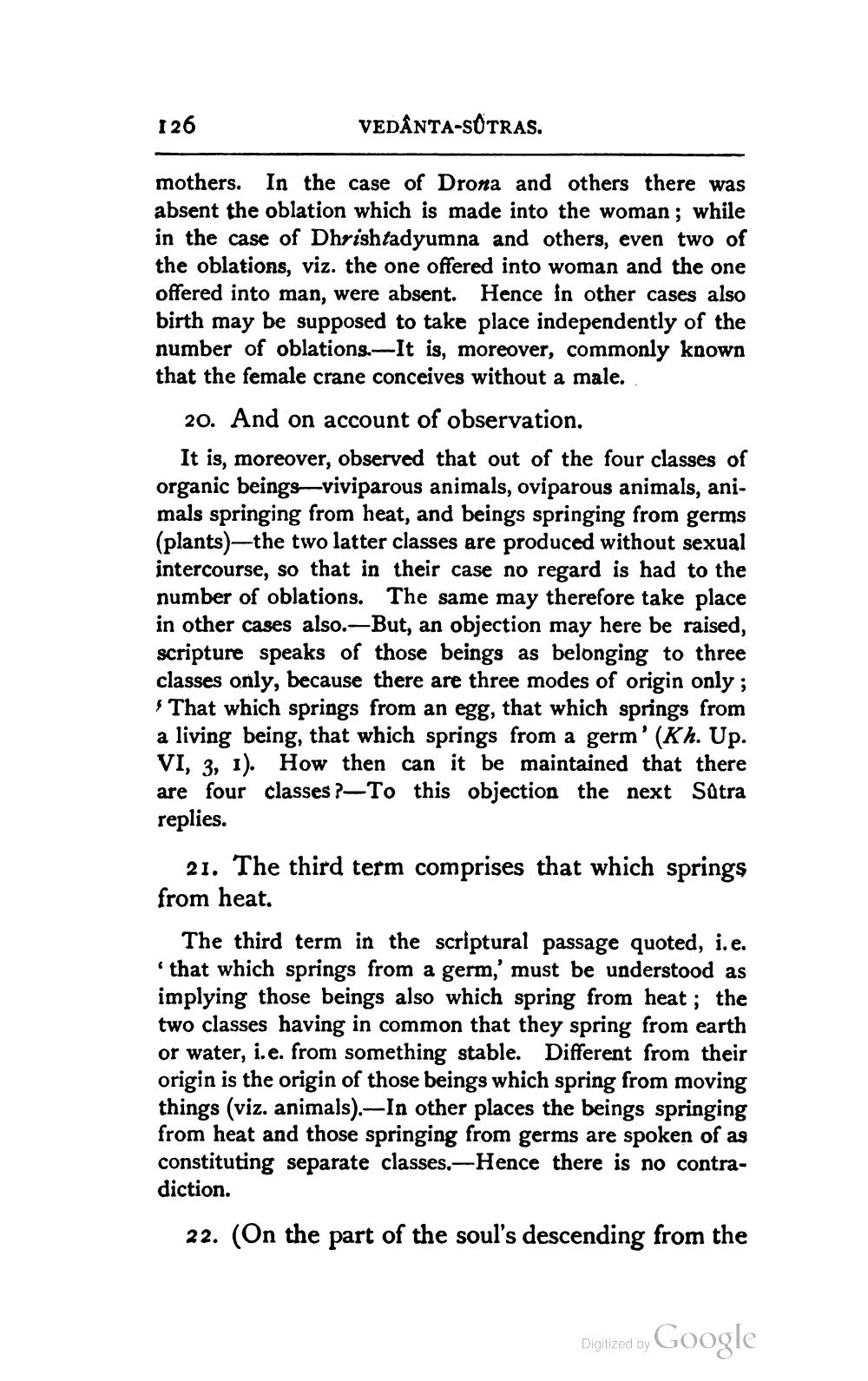________________
126
VEDÂNTA-SÓTRAS.
mothers. In the case of Drona and others there was absent the oblation which is made into the woman; while in the case of Dhrishtadyumna and others, even two of the oblations, viz. the one offered into woman and the one offered into man, were absent. Hence in other cases also birth may be supposed to take place independently of the number of oblations. It is, moreover, commonly known that the female crane conceives without a male.
20. And on account of observation.
It is, moreover, observed that out of the four classes of organic beings-viviparous animals, oviparous animals, animals springing from heat, and beings springing from germs (plants)—the two latter classes are produced without sexual intercourse, so that in their case no regard is had to the number of oblations. The same may therefore take place in other cases also.—But, an objection may here be raised, scripture speaks of those beings as belonging to three classes only, because there are three modes of origin only ;
That which springs from an egg, that which springs from a living being, that which springs from a germ' (Kh. Up. VI, 3, 1). How then can it be maintained that there are four classes ?—To this objection the next Satra replies.
21. The third term comprises that which springs from heat.
The third term in the scriptural passage quoted, i.e. that which springs from a germ,' must be understood as implying those beings also which spring from heat ; the two classes having in common that they spring from earth or water, i.e. from something stable. Different from their origin is the origin of those beings which spring from moving things (viz. animals).-In other places the beings springing from heat and those springing from germs are spoken of as constituting separate classes. Hence there is no contradiction.
22. (On the part of the soul's descending from the
Digitized by
Digilzed by Google




